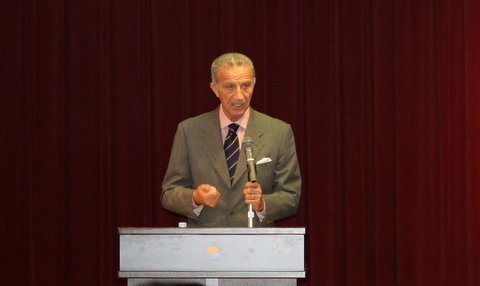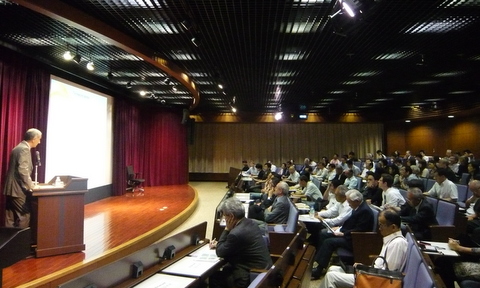The 71st Public Policy Seminar

Lecture by Vincenzo PETRONE, Italian Ambassador to Japan
“The Future of the Euro Zone Seen from Italy
—the Political and Economic Dimensions”
Date and Time: July 2nd, Monday, 16:45-18:00
Venue: Koshiba Hall (MAP)
Language: English

Summary
His Excellency Mr. Vincenzo Petrone, Ambassador of Italy to Japan, delivered a lecture at the University of Tokyo on of the future of Eurozone and the European Union.
Ambassador Petrone started his speech with stating 3 “yes” and 1 “no”:
Yes, it is true that the governance of the Euro was incomplete; the founding fathers of the EU did not foresee tools for this kind of crisis management.
Yes, the European Debt Crisis (EDC) will impose upon the member states integration level that was unthinkable 2 months ago.
Yes, this sacrifice is the only option. It is essential to continue to develop the Euro as the pillar of the European future.
And no, there is no single, simple solution for the EDC. The real process of constructing the new architecture of the Eurozone will take months or even years. Without the euro the world system will collapse.
According to Mr. Petrone, the evolution of European integration was not necessarily linear, and the history proves that. The 17 European countries are now in a tunnel that will bring them to a more integrated union.
At the time of creation of the European Union it was impossible to identify any mechanism for fiscal transfer, EU budget was very limited (around 1.25% of GDP), common market was incomplete (problem of limited intra-EU labour mobility), the EU had no common fiscal policy nor taxation.
Ambassador Petrone expressed his belief that Italy and Europe in general would not have any crisis like they are experiencing today, if the domestic market (including the labour market) reforms had been carried out.
The second part of Ambassador's speech included his views on what are the possible solutions for the EDC:
- Enhancing fiscal discipline
- Deeper fiscal & banking union
- Promoting availability of funding from EFSF>>ESM with sufficient firewall power to address market's speculation.
- Sufficient liquidity for the European Central Bank
A number of measures to promote financial stability have been adopted, including the Fiscal Compact of March 2012 with a mandatory balanced budget rule that is going to become part of European constitutions. The European Summit that was held on the week before this seminar made Eurozone countries agree on direct financing of banks in order to avoiding increase of public debt of individual countries.

At the end of the seminar, Ambassador Petrone focused on Italy and its long-term ability and commitment to achieve financial stability. He pointed out that Italy has a commitment to bring its debt to 60% of its GDP within 20 years, meaning that the country will need to have a budget surplus of around 5% of its GDP. And the country’s productive system, according to him, allows it to do that. In his opinion, Italy needs far-reaching systemic reforms to reduce public expenditures and, more importantly, increase the country’s competitiveness. Growth will improve the Debt/GDP ratio of Italy.
Mr. Petrone also pointed out that Italy’s credibility as a financially stable country was ignored and its government is currently trying to restore it. He also brought some figures convincing the audience about the country’s financial stability. Italy has one of the most stable Debt/GDP ratio in the Eurozone, growth of its deficit has been reduced and the country recorded a primary surplus in 2011. Its direct exposure to European countries' debt is very low. Besides that, in 2011 Italy adopted a very strict budget. And, following the recent reform, the Italian pension system is now, according to the speaker, perhaps the most sustainable in the world, as the retirement age is defined by the life expectancy of each generation.

Related Resources
- Profile of Ambassador Vincenzo PETRONE (PDF, 51.2KB)
- Slides (PDF, 342KB)
- The Public Policy Seminar Series

